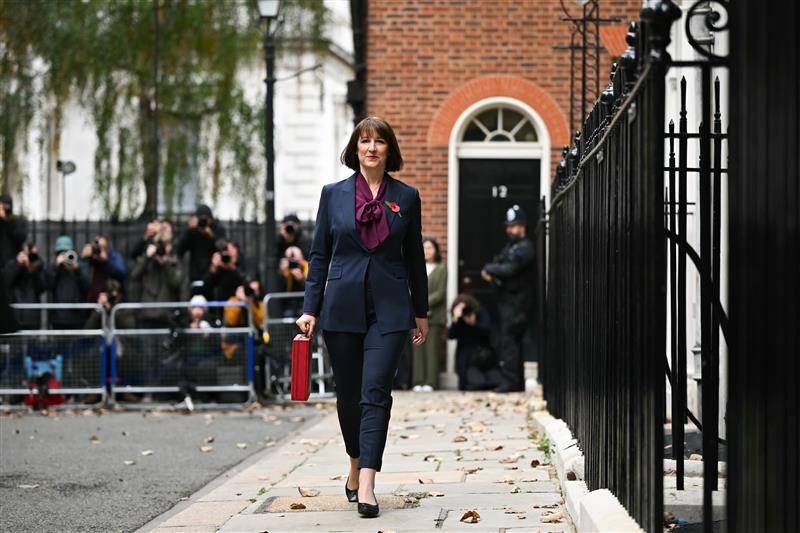Review of the week: Middle-Eastern tensions rise further
An Iranian missile attack on Israel was thwarted over the weekend. While markets are calm, risks of escalation linger.

Article last updated 30 September 2025.
Quick take:
- The market response has been calm after a large Iranian missile attack on Israel- Higher energy costs that push inflation above 4% would cause wider global economic problems, yet the oil price hasn’t reacted much so far
- US inflation rose unexpectedly in March to 3.5%, reducing forecasts for 2024 US interest rate cuts to just one or two
On Saturday night, Iran launched hundreds of missiles and drones at Israel in retaliation for a suspected Israeli strike in Damascus on 1 April.
As a result, the Middle East, already inflamed with war, appears closer to a wider conflagration than it has for many years. UN secretary-general António Guterres said he was “deeply alarmed about the very real danger of a devastating region-wide escalation”.
Analysing the financial implications of events like these may seem trivial in the face of the loss of life and the terror with which people in the region are now forced to live. Our thoughts are with anyone with friends or family there. We have a duty to our clients, however, and to assess how events may affect markets and your investments.
So far, the market response has been calm. It’s important to know that the vast majority of geopolitical events don’t have a lasting impact on financial markets, so it’s important to be wary of knee-jerk reactions. The exception is when something causes a persistent and very significant increase in inflation. One sure-fire cause of increased inflation is an increase in the cost of energy, because that touches virtually everything in our society. As we all know, the Middle East is a huge supplier of the oil and gas which power our world.
Energy prices are the key to the consequences of this weekend’s events. There are clear parallels to the two oil shocks of the 1970s. The first, in 1973, was caused by Opec’s response to Western support for Israel in the Arab-Israeli war. The second, in 1979, was sparked by falls in output linked to the Iranian Revolution. Both Iran and Opec account for a smaller share of global oil production than they did in the 1970s, but they’re still significant: Iran accounts for around 4% of global oil production and 6% of natural gas. There’s also a parallel to the ongoing Ukraine war – although, it’s important to note that Russia and Ukraine are responsible for huge shares of both oil and gas and non-energy commodities, which no doubt exacerbated the energy shock. And Russia invaded during a period of severely tangled post-lockdown supply chains and muddled labour markets, which had inflationary consequences in and of themselves.
The Brent oil price has risen steadily since its recent trough of below $70 in December to above $85 a barrel. Yet it hasn’t reacted meaningfully since the recent rise in tensions between Iran and Israel, and it’s still well below the $115 peak of a year ago. If the conflict between Israel and Iran escalates and sends oil and gas prices much higher, then we must decide if it will create a persistent increase in developed-market inflation above roughly 4%, and whether that would bring about a recession. If both answers are ‘no’, then we think any falls in equities could present an opportunity to buy. However, if we answer ‘yes’ to either, then the financial consequences are likely to be graver and more complex. Late last year, we set out how we assess and react to geopolitical risks. We are carefully monitoring the situation and markets, and receiving expert advice and insight from external partners to keep ourselves informed.
| Index |
1 week |
3 months |
6 months |
1 year |
| FTSE All-Share |
1.1% |
5.8% |
7.4% |
6.6% |
| FTSE 100 |
1.2% |
6.2% |
6.6% |
6.4% |
| FTSE 250 |
0.2% |
3.6% |
12.3% |
7.5% |
| FTSE SmallCap |
1.4% |
3.3% |
10.1% |
8.9% |
| S&P 500 |
-0.1% |
10.3% |
16.6% |
27.5% |
| Euro Stoxx |
-1.1% |
8.1% |
15.1% |
11.3% |
| Topix |
2.6% |
8.5% |
14.6% |
22.9% |
| Shanghai SE |
-0.2% |
6.4% |
-3.8% |
-13.5% |
| FTSE Emerging |
1.4% |
7.7% |
7.2% |
9.0% |
Source: EIKON, data sterling total return to 12 April
| These figures refer to past performance, which isn’t a reliable indicator of future returns. The value of investments and the income from them may go down as well as up and you may not get back what you originally invested. |
Transatlantic divergence
The heat has increased for US inflation as well. The rise in fuel prices, noted above, combined with a continued rise in housing costs to push headline CPI to 3.5% in March. Economists had expected the inflation rate to rise from 3.2% to 3.4%.
There were other pressures too, including the cost of restaurants and clothing, but the main concern – for us – is labour costs. The market seems to agree, as the stats release led to (another) significant reappraisal of the potential for 2024 interest rate cuts. When the year dawned, around six 25-basis-point reductions were generally forecast. Now, it looks more like one or two, according to markets to lock in future interest rates. This reassessment sent bond yields higher, with the benchmark US 10-year government bond trading nearer to 4.60%, compared with 4.20% at the start of the month. UK 10-year yields rose as well, albeit not as dramatically, as many still expect the Bank of England (BoE) to cut rates well before the US. The BoE should be able to move earlier because the economy is much weaker and inflation appears to be more controlled on this side of the Atlantic.
On the theme of the transatlantic economic divergence, the European Central Bank (ECB) met last week. Its rate-setting committee’s language suggests that it could cut rates in June, even if the US Federal Reserve (Fed) waits much longer. A few members favoured cutting rates now and, overall, policymakers said that "it would be appropriate to reduce the current level of monetary policy restriction" if they saw more evidence of underlying inflation slowing in the coming months. In ECB President Christine Lagarde's words, the "direction is rather clear".
We expect the ECB and the BoE to start cutting interest rates around the middle of the year, even if the Fed decides to wait much longer, given the inflation outlook in the UK and Eurozone. As a turn-up for the books, the UK is probably the most likely to cut first (a dubious win given the driver is a poorly running economy). Admittedly, there’s more evidence each day that the UK and Eurozone are now emerging from last year's stagnation/mild recessions. Monthly GDP data showed that the UK grew again in February after an upwardly revised performance in January, so it's highly likely that the economy returned to growth in the first quarter as a whole.
Yet UK inflation is expected to fall sharply again in the next set of monthly figures, with Ofgem's energy price cap falling this month. UK headline inflation could very soon be well below the BoE’s 2% target, as food inflation also falls a lot further. Some forecasters are now suggesting it could drop as low as 0.5%. If so, that could push the central bank to cut faster and deeper. All else equal, that would be a boost to UK assets.
If you have any questions or comments, or if there’s anything you would like to see covered here, please get in touch by emailing review@rathbones.com. We’d love to hear from you.



